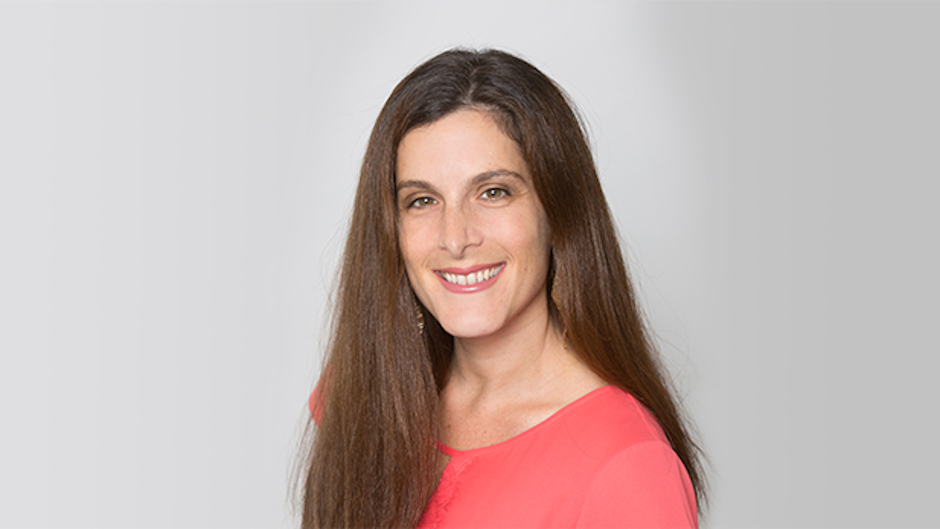Overcoming barriers put up by the COVID-19 pandemic, Romy Lerner, associate director of the Immigration Clinic, worked with students this past semester to win asylum for two political activists. The first was a law student and member of Venezuela’s political opposition who endured physical attacks and threats of arrest as she fought to defend freedom of speech, human rights and democracy in Venezuela. The second client’s family played a key role in the Arab Spring and nation-building in their native country. As a result of their political activities in support of democracy and human rights, the client was a victim of an assassination attempt and both his parents were killed. The client had to wait in a backlog of five years to have his case heard. The government scheduled his case only after Lerner and her students filed a petition for writ of mandamus in U.S. District Court to force the government take action.
The restrictions on in-person meetings and hearings due to the COVID-19 pandemic made it particularly difficult to prepare the two asylum cases.
“Preparing for asylum hearings is an emotionally difficult process because it often requires rehashing painful experiences with the client,” said Lerner. “We were lucky that our clients were comfortable with technology and had access to it so we could meet over Zoom. It was far from ideal to prepare via video, but the students still managed to connect personally with their clients in a way that eased the process.”
David Mancia Orellana, a 3L and a Clinic fellow who represented one of the asylum clients last semester says, “I am grateful to work under the mentorship of Professor Lerner. She is sincerely devoted to the success of all her students and has a genuine interest in developing our legal skills. Her expertise and passion for the material makes learning immigration law exciting. It’s why I chose to be a student fellow after a year in the Clinic.”
A double Columbia graduate, Lerner had her choice of big law firm jobs when she graduated in 2002. She worked for nearly three years as a litigation associate at Paul Weiss in New York City, where she was assigned to securities and antitrust cases. She knew that she needed to switch career trajectories when she took a pro bono asylum case.
“Even before I went to law school, I knew that I ultimately wanted to do social justice work," said Lerner. "But it wasn’t until I took an asylum case pro bono at Paul, Weiss that I realized my passion lay in immigration." In 2005, she joined Florida Immigrant Advocacy Center, now called Americans for Immigrant Justice. “I was nervous when I first started the job. I took a big pay cut and had to leave New York City, where I’d lived for a decade. But I knew almost immediately that I had made the right choice. I love what I do.” Lerner joined Miami Law in 2013.
Over the last fifteen years, Lerner has represented asylum seekers from over ten different countries, including Cuba, Haiti, Jamaica, Somalia, Egypt, Libya, Cameroon, Russia, Honduras, Guatemala, Moldova, Mexico, and Belize. Her advocacy ranges from appearing with law students before immigration judges to arguing before federal appellate judges. She is counsel of record on an amicus brief by American Immigration Lawyers Association in a case to be decided by the U.S. Supreme Court later this year.
Many of Lerner’s clients have been detained in one of the three immigration jails located within a few hours of Miami. “I think it’s so important for immigration advocates to represent non-citizens in detention," said Lerner. "Detained individuals are less likely to have access to legal representation and less likely to win their cases than their non-detained counterparts. Assisting clients in detention also helps us monitor conditions. It’s an important part of what the Clinic does.”
Until recently, Lerner sat on the board of the Detention Watch Network, a national coalition dedicated to working towards the abolition of immigration detention in the United States. She is active with American Immigration Lawyers Association, the largest immigration bar association in the country.
Reflecting on her eight years working at Miami Law, Lerner says, “I love that I get to share my passion for social justice and immigration with our students every day. Even though many of our students won’t practice immigration law or work in public service, I know that most will leave the clinic with a commitment to giving back to the community in some way.”
Read more about Miami Law's Immigration Clinic.

